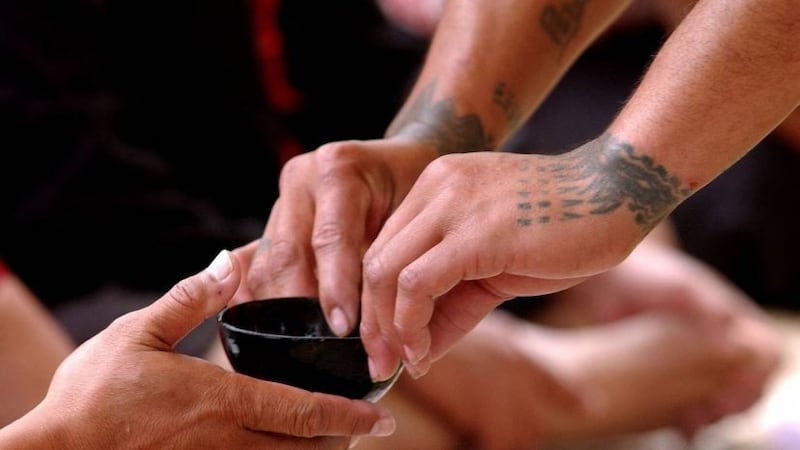The clinical study will record how sharing kava in a traditional setting can ease the symptoms of trauma. Photo / Getty Images/File
It is a plant with thousands of years of use and with deep cultural roots in the Pacific.
Now a team of New Zealand researchers is studying kava - and its use in traditional settings - as a way to heal those living with trauma.
While the plant, the root of which is mixed in water and consumed across the Pacific, has been packaged and sold in supplements for years, its use in cultural spaces has been largely ignored by the pharmaceutical companies that sold it around the world as a relaxant and sleep aid.
Now Pacific health researcher Dr Apo Aporosa and Pacific mental health nurse lecturer Dr Sione Vaka from the University of Waikato will co-lead a study to assess the efficacy of kava when consumed alongside talanoa, the open and respectful dialogue that accompanies kava drinking in formal and informal settings.
The clinical trials will take three years, focusing on first responders, corrections staff and military personnel who have seen combat and they will be supported by a nearly $1 million grant from the Health Research Council.
Aporosa said he was "extremely grateful" to have the research funded. "This could save people's lives," he told the NZ Herald.
But the former police officer turned academic noted that the development was “bittersweet”.
"It's likely we're going to spend a million dollars to prove what traditional Pacific knowledge has been trying to tell Europeans for the last 200 years," he told the Herald.
He said he relished the opportunity to prove the efficacy of faikava (the traditional sharing of kava and conversation) in treating Post-Traumatic Stress Disorder (PTSD) and heal more broken people by inviting them into the kava circle.
“I’m so stoked that the Health Research Council has faith in us as a team to do this critically important work because it’s not just me, it’s the entire team,” Aporosa said.
‘We’re not here to make money’
The WHO reports that around 10 per cent of New Zealanders will experience PTSD but first responders, corrections officers and military personnel suffer at much higher rates.
Aporosa, a former soldier and police officer who left the force due to PTSD, has spent years exploring the role of kava and talanoa in relieving trauma symptoms.
That experience - speaking with military and police around the world - coupled with his own personal journey, led to Aporosa being awarded a Fulbright Scholarship last year to study the subject further in Hawai’i.
That work will help inform the clinical study.
Aporosa said one aim of the research was to produce a guide that could be used by those struggling with PTSD and other mental health issues, without the need for direct intervention from a psychologist and outside of what, he said, could be a eurocentric framework.
“Our goal is that, following the clinical trials, you and your friend will be able to download a free book that explains how we do the intervention.”
“We’re potentially providing a form of therapy that people are going to be able to easily replicate, by simply sitting with friends and drinking a traditional substance that allows for quality conversation as it doesn’t cause euphoria or disinhibit like alcohol or cannabis.”

